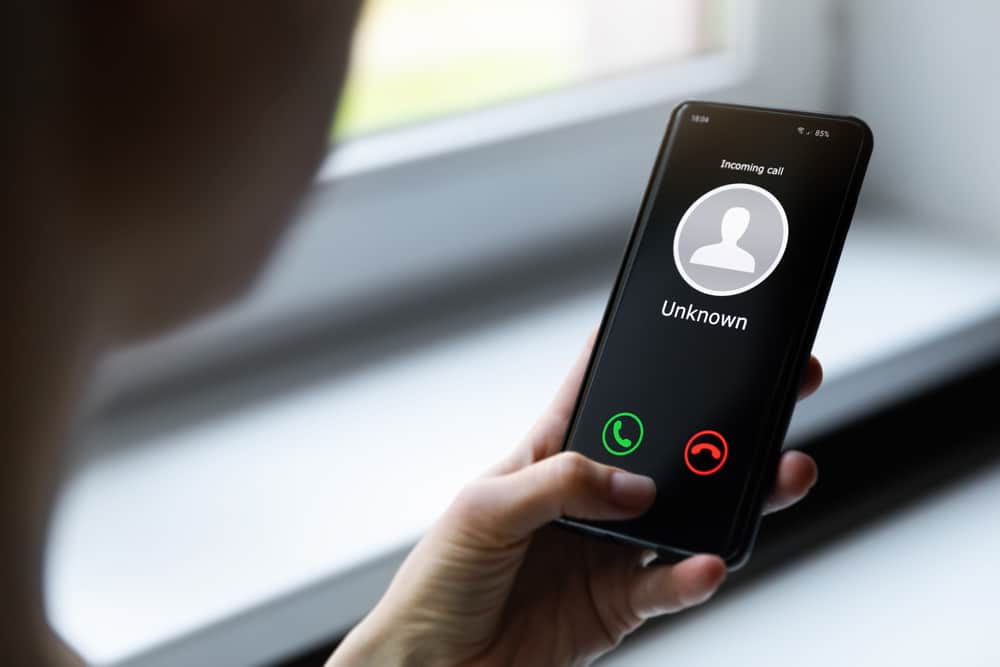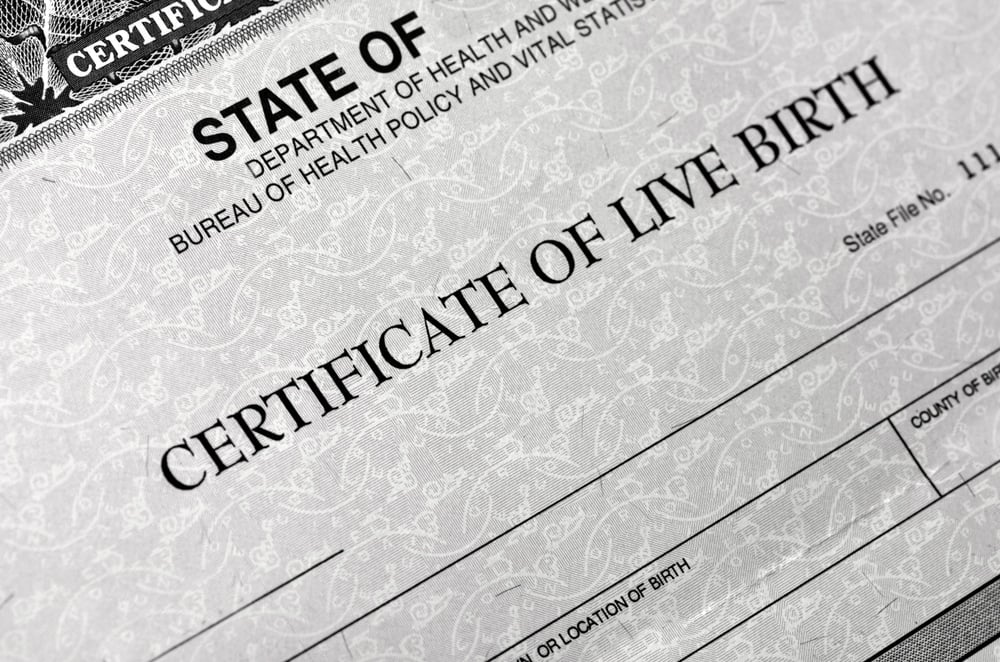10 Common Phone Scams: Your Complete Guide to Staying Safe
Cindy Ellis - October 24, 2022

Phone scams have become almost commonplace in recent decades, and most individuals with a mobile phone or even a landline phone have received one of these annoying calls. However, the phone scams of today are becoming increasingly more difficult to verify as scammers increase the effort that they put into these phone calls.
Our article aims to help you understand some of the most common phone scams around today and gives you advice on avoiding being a victim of these scammers.
10 Common Phone Scams You Need to Know About
There are a lot of different phone scams around, but some of these scam calls are more common than others. Below, we give an overview of the ten most common phone scams you should know.
1. IRS Calls
One of today’s most popular and widely known phone scams is the IRS call scam. In this scam, the caller claims to be from the IRS and uses the confusion that can surround taxes, working with the IRS, and debt to encourage the individual to pay them directly. They may threaten immediate payment, fines, or even jail time.
However, it’s important to remember that the IRS will never call you to alert you of tax issues or debt. The IRS will also never ask for payment in the form of gift cards, direct banking information, or credit card information over the phone. These are all fairly sure signs you are dealing with a scammer.
2. Technical Support Scams
Technology can overwhelm many people, and technical support scams prey on this. Scammers involved in these phone calls will claim to be from a well-known technology company such as Apple or Microsoft and will claim that an error or virus has been detected on your computer.
Once they confirm what type of computer you have, they will attempt to gain remote access to your computer to ‘fix’ the issues but will instead end up installing viruses or malware. They may even lock you out of your computer and demand money to fix the situation.
Unfortunately, elderly individuals are the most likely to fall for these scams, as these calls can be overwhelming and confusing for those without much IT experience.
Remember that Apple and Microsoft will never contact you directly about a virus on your computer.
3. Website Security Requests
Gaining access to your online accounts is a fairly common theme with scammers, and they won’t waste time attempting this over the phone either. Phone calls that request your passwords for security reasons or to verify your identity are designed for the sole purpose of stealing your personal information.
Never give out passwords or usernames over the phone, regardless of where the scammer claims to be from.
4. Family Emergency Scams
A particularly upsetting phone scam is one where the scammer will call and claim that your mother, father, brother, sister, or grandchild has been involved in an accident or legal troubles. Then, the scammer will demand money to pay off medical bills or legal fees to ensure your family member remains safe.
Again, scams like these typically target the elderly, who might be confused about who is calling and whether or not their family members are safe.
So if you do receive a call claiming a family member is in trouble, the best thing to do is hang up and call that person directly for more information. You can also call police stations and hospitals to trace the whereabouts of your loved one.
5. Fraudulent Bank Calls
Another well-known phone scam involves the scammer calling and claiming to be from your bank. They will request important details about the bank account to “verify” your information and deal with whatever fraud or issue they claim is happening. In reality, they are trying to gain access to your account and banking information.
Never give out your bank or financial information over the phone; hang up and call your bank directly if you are concerned about a fraudulent charge or another issue. You can also look up the scammer’s phone number and see if it matches any of your bank’s numbers; banks usually make it clear that there are only one or two specific numbers they will ever call you from.
6. Insurance and Health Care Scams
Insurance or health care issues are often worrying and confusing and a major target for scammers. In these scams, a person will call you claiming to be from Medicare, your insurance agency, or another loan agency and report an issue with your information. Then, they will request personal information from you to try and verify your account, supposedly complete a purchase, or verify loan information.
In reality, the scammers are just attempting to gain personal information from you that they can use as part of an identity theft scam. Remember that agencies like Medicare won’t call you, and insurance or financial intuitions won’t ask for payments or other items like that over the phone unless you initiate the call to the agency directly.
7. Fake Charity Calls
Scammers engaged in fake charity scams prey on individuals and their goodwill. These calls will reference a local or national disaster and claim they are collecting money for relief efforts. The scammer will attempt to get you to give up your financial information or simply send them money directly.
If you do want to help with a relief effort of any kind, donate to an organization directly after performing research on their legitimacy.
8. Lottery Scams
A lottery scam is exactly what it sounds like – a scam that involves the caller trying to convince you that you have won the lottery. The individual might not even remember entering the lottery, or the lottery might be based in a different state or country. The scammer will then ask you to pay taxes in order to collect your winnings.
Remember that you should never have to pay to access something you’ve won, and be wary of any calls informing you that you have won something, as this is highly unusual.
9. Small Business Scams
Small business scams prey on individuals that run businesses and want to ensure their reputation is positive in their community. In this scam, the scammer will call the business and claim there is something wrong with their online information, such as a website, Google, or Yelp page, or that they are a customer and have an emergency need that has to be addressed immediately. The scammer will typically request money or a fee to fix the issues, tricking the business or employees into giving out financial information.
Keep in mind that if you run a small business, you can update and double-check your business’s information online by going directly through your web hosting services.
10. Utility and Loan Scams
Many scam phone calls revolve around trying to get an individual’s financial or personal information. A utility scam involves the scammer telling you that you qualify for free or low-rate utilities and asking for personal information to enroll you in the program. Loan scams are similar; the scammer will inform you that you can receive loan consolidation or debt relief once you hand over your personal or financial information.
Generally, scams like these are portrayed as something urgent to get the individual to give up their information without thinking. Never trust a phone call that seems too good to be true, and if you have questions, hang up and call the agency handling your utilities or loans directly.
Further Information About Phone Scams
Now that you know about the ten most common phone scams, you may have further questions or want to know how to protect yourself. We cover everything else you need to know about phone scams below.
Do People Actually Fall For Phone Scams?
Oftentimes, phone scams are fairly easy to identify due to robotic voices, repeated messages or threats, and conversations that sound scripted. However, not everyone is familiar with every type of phone or text scam out there, and scammers are becoming more and more efficient at making convincing phone calls each day.
You should also note that certain populations are more vulnerable to phone scams than others, such as the elderly. It can be confusing for some people to receive these phone calls, and, unfortunately, concern for family members, their health, or their financial situations will override logical and critical thinking.
This isn’t to say that people who fall for phone scams are unintelligent in any way, but more that scammers know exactly how to trigger fear, anxiety, and concern to get what they want—your money or personal information.
It’s important to stay informed about phone scams and always think critically when receiving a concerning phone call. When in doubt, hang up and double-check your information through a separate verified source and never give out your personal details or financial information over the phone.
Avoiding Being a Phone Scam Victim
If you want to avoid accidentally falling for a phone scam, there are some things that you should look out for when you receive a concerning call. Keep in mind that scammers are constantly changing the way they deliver phone scams, but the below are the most common factors that occur with phone scams.
- Asking for money, credit card information, passwords, or financial details immediately—most companies and agencies have policies in place for verifying your information, and it’s not generally going to be handled by reading your information off over the phone. Asking for payment in the form of gift cards is also a red flag.
- Threats of legal action, jail time, and fines are unlikely to occur from legitimate sources. This is a tactic to frighten you and encourage you to be compliant with whatever else the scammer is asking for.
- Refusing to answer questions, speaking as if according to a script, or being pushy and aggressive when it comes to asking for your personal information are all warning signs of a scammer. Real organizations will answer questions, allow you to speak with supervisors, and avoid being overly aggressive on the phone.
You should also note that if you have doubts about a phone number or who is calling you, you can use a phone number lookup tool to trace the caller. Simply input the phone number into a tool like this one, or run an internet search on the number, and you should get an answer as to whether or not the number is coming from a scammer.
Another easy way to protect yourself from scam calls is to enable scam-blocking apps on your phone. These are typically built-in to the software and will automatically block robocalls or other phone numbers that have been reported as scam numbers.
Protect Yourself From Phone Scams
Always keep your wits about you when receiving a concerning phone call, and never give out personal information or financial information over the phone. When in doubt, hang up the call and perform research separately through verified sources to ease your concerns.






